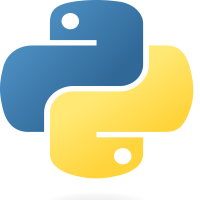
Python - Variables
11-Jan-2024Understand the fundamentals of Python variables, how to declare them, and their role in storing data within your programs.
Overview :
Variables in Python serve as containers for storing data values. They play a crucial role in programming by enabling the manipulation and storage of information. Understanding how to declare, assign values, and use variables is fundamental to writing effective Python code.
In Python, declaring a variable is as simple as assigning a value to a name. No explicit data type is required; Python dynamically infers the type.
# Declaration and assignment age = 25 name = "John" is_student = True
Naming Conventions :
Follow these conventions when naming variables:
- Use descriptive names that convey the variable's purpose.
- Start with a letter or underscore.
- Subsequent characters can be letters, numbers, or underscores.
- Avoid using reserved words.
Data Types :
Python supports various data types, including:
- Numeric Types:
- int for integers.
- float for floating-point numbers.
count = 10 price = 29.99
- Text Type:
- str for strings.
name = "Alice"
- Boolean Type:
- bool for Boolean values.
is_active = True
Dynamic Typing :
Python is dynamically typed, meaning you can reassign variables to different data types.
x = 5 x = "Hello"
Printing Variables :
Use the print() function to display the value of a variable.
age = 30 print("Age:", age)
Conclusion :
Understanding Python variables is foundational to writing effective code. Variables allow you to store, manipulate, and retrieve data, providing flexibility and power in your programming endeavors.


